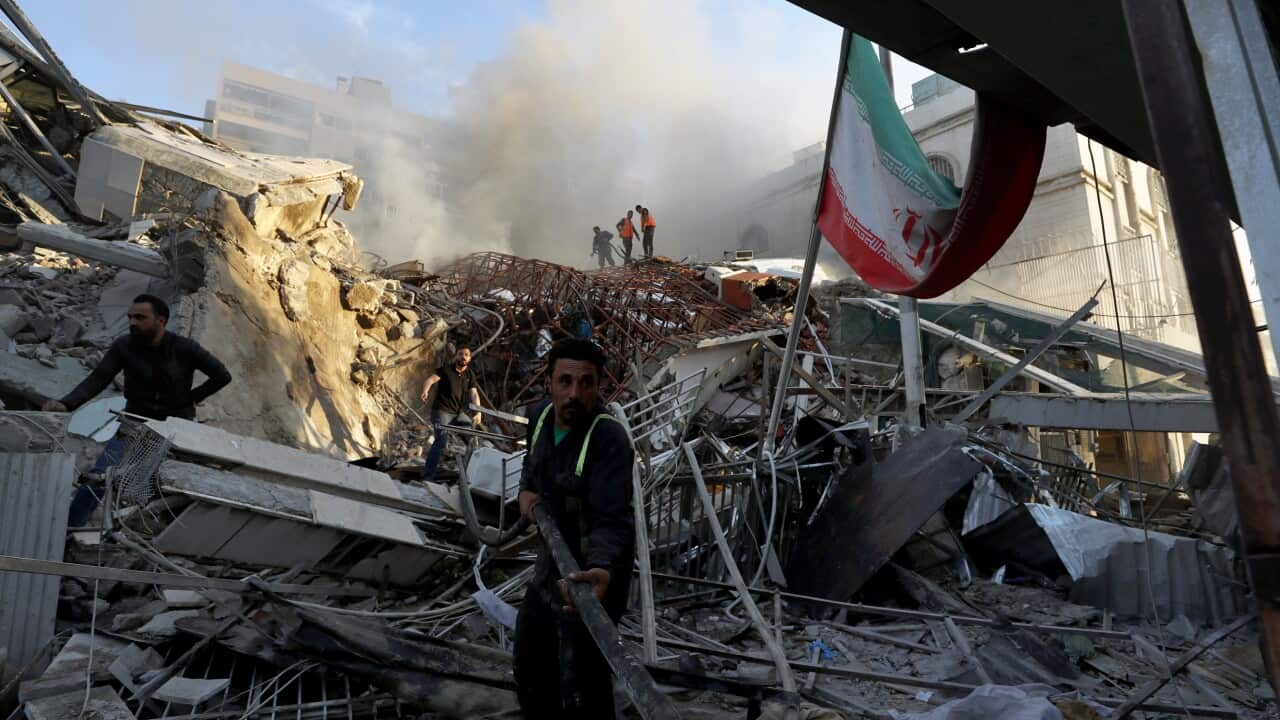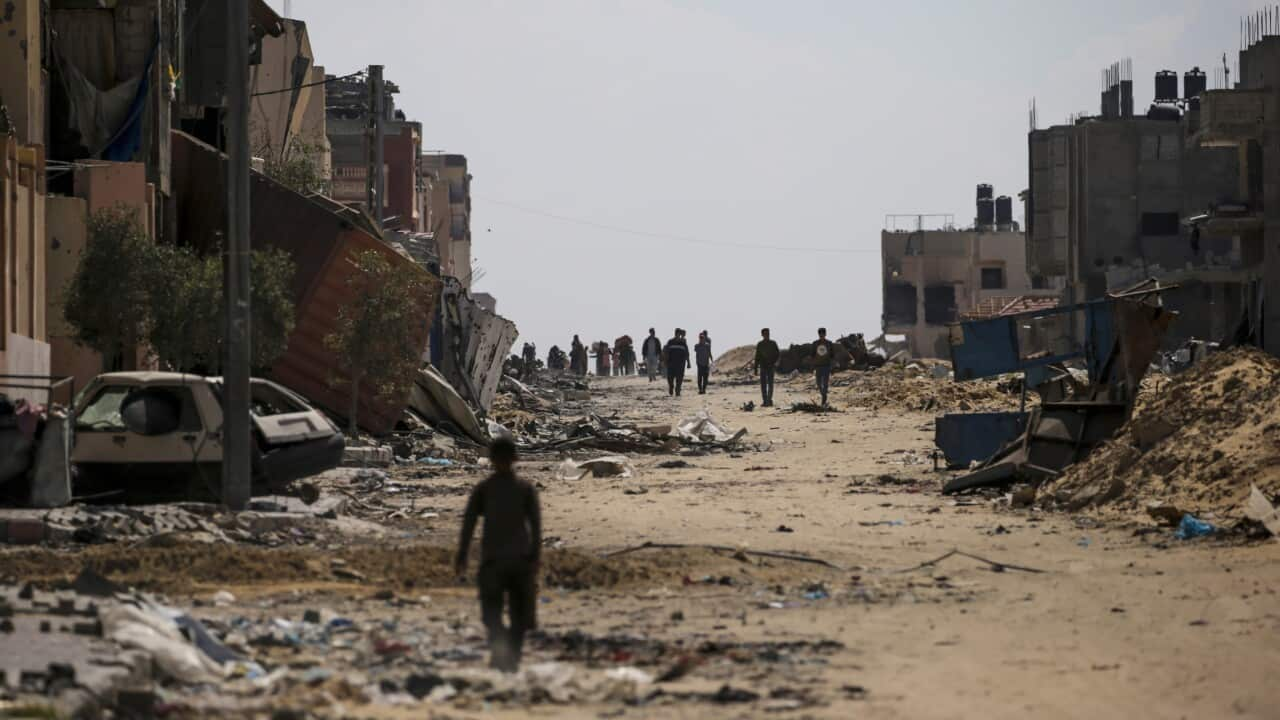Key Points
- Foreign Minister Penny Wong has urged Iran not to take military action against Israel.
- Russia and Germany have urged countries in the Middle East to show restraint, as Israel faces Iran strike threats.
- Israel says it is preparing to "meet all its security needs" both "defensively and offensively".
Australia has urged Iran to show restraint and avoid escalating conflict in the Middle East.
An airstrike on Iran's embassy in Damascus earlier this week killed a top Iranian general and six other Iranian military officers. Iran has vowed revenge for the strike, which is suspected to have been carried out by Israeli warplanes. Israel has not claimed responsibility for the attack.
Iranian Supreme Leader Ayatollah Ali Khamenei called the strike tantamount to an attack on Iranian soil and said Israel "must be punished, and it shall be".
In a statement posted on X overnight, Foreign Minister Penny Wong said Australia is "deeply concerned by indications Iran is preparing military action against Israel".
Wong said she had spoken to Iran's foreign minister, Hossein Amir-Abdollahian, urging Iran to "use its influence in the region to promote stability, not contribute to escalation".
UK, Russia and Germany urge restraint in Middle East
Australia joins countries including the United Kingdom, Russia and Germany in urging restraint, as Israel says it is preparing to "meet all its security needs" in a region on edge over an Iranian threat to strike Israel.
British foreign minister David Cameron said on Thursday he had made clear to Amirabdollahian that Iran should not draw the Middle East into a wider conflict.
"I am deeply concerned about the potential for miscalculation leading to further violence," Cameron said on X.
The German airline Lufthansa extended a suspension of its flights to the Iranian capital Tehran and Russia warned against travel to the Middle East.
German foreign minister Annalena Baerbock called on Amirabdollahian to urge "maximum restraint" to avoid further escalation.
Russia's foreign ministry told citizens they should not travel to the Middle East, especially to Israel, Lebanon and the Palestinian territories.
"Right now it's very important for everyone to maintain restraint so as not to lead to a complete destabilisation of the situation in the region, which doesn't exactly shine with stability and predictability," Kremlin spokesman Dmitry Peskov said.
United States warns of expected attack by Iran
The United States expects an attack by Iran against Israel but one that would not be big enough to draw Washington into war, a US official has said.
The White House said Washington did not want conflict to spread in the Middle East and the US had told Iran it was not involved in the strike in Damascus.
The White House added it warned Iran to not use that attack as a pretext to escalate further in the region.
US State Department spokesperson Matthew Miller said secretary of state Antony Blinken called counterparts including the Turkish, Chinese and Saudi foreign ministers "to make clear that escalation is not in anyone's interest and that countries should urge Iran not to escalate".
US President Joe Biden said on Wednesday that Iran was threatening to launch a "significant attack in Israel", and that he had told Israeli Prime Minister Benjamin Netanyahu that "our commitment to Israel security against these threats from Iran and its proxies is iron-clad".
Netanyahu said Israel was keeping up its war in Gaza but making security preparations elsewhere.

Israeli Prime Minister Benjamin Netanyahu said his government was "prepared to meet all of the security needs of the state of Israel". Source: AAP / Pool/ABACA/PA/Alamy
Conflict has spread across the Middle East since the eruption of the Gaza war, with Iran-aligned groups declaring support for the Palestinians waging attacks from Lebanon, Yemen and Iraq.
Iran has avoided direct confrontation with Israel or the US, while declaring support for its allies.











